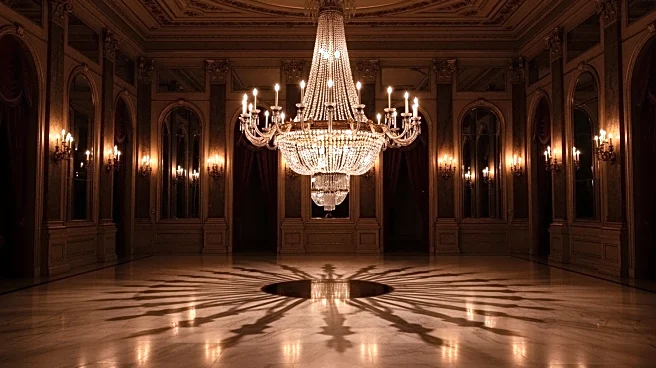What's Happening?
Senator Ruben Gallego has criticized President Trump's decision to construct a new ballroom at the White House, calling it a distraction from more pressing issues. The project, which involves the demolition
of the East Wing, is funded by President Trump and several major corporations, including Amazon and Google. The ballroom is expected to cost $300 million, an increase from the initial $200 million estimate. Gallego argues that the focus should be on addressing economic challenges faced by Americans, such as inflation and tariffs, rather than on projects that do not benefit the public.
Why It's Important?
The construction of the ballroom has sparked debate over the use of private funds for public projects and the ethical implications of corporate involvement in government affairs. Critics argue that the project diverts attention from critical economic issues affecting Americans, such as rising living costs and tariffs. The involvement of major corporations raises concerns about potential conflicts of interest and the influence of private entities on public policy. The project also highlights the ongoing tension between President Trump's administration and its critics, who question the priorities and decision-making processes of the government.
What's Next?
The ballroom's construction is likely to continue, with potential legal and political challenges from opponents who may seek to halt or reverse the project. The National Capital Planning Commission's lack of prior approval could become a focal point for legal action. Additionally, the naming of the ballroom remains undecided, with President Trump denying plans to name it after himself. The project may also prompt further scrutiny of corporate donations and their impact on government projects, potentially leading to calls for increased transparency and regulation.











